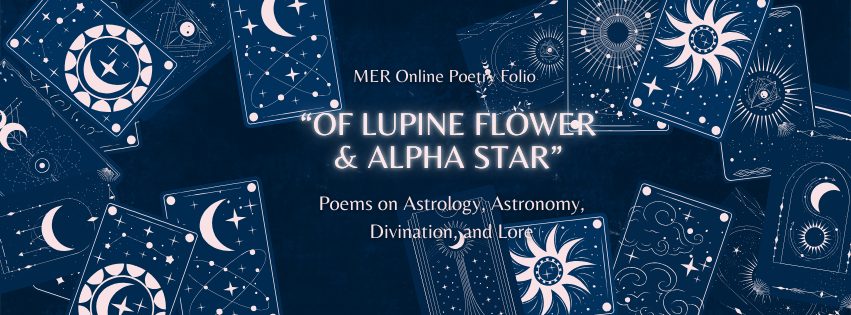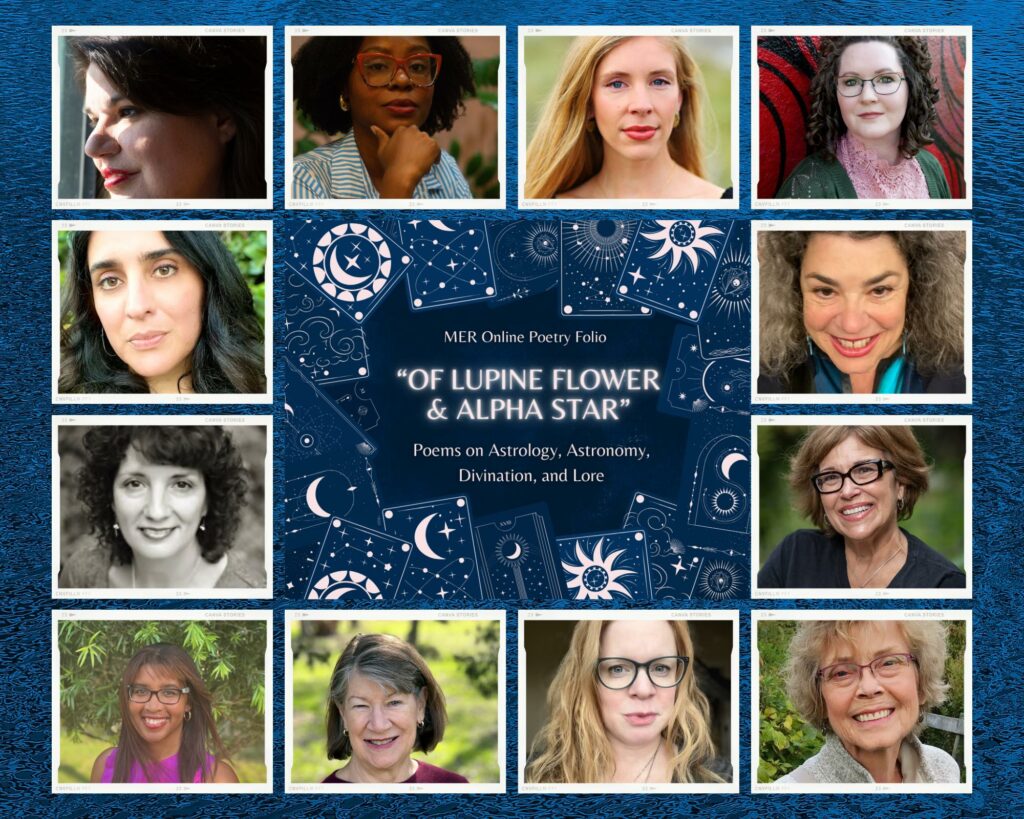Curated by Jennifer Martelli and Cindy Veach
In her poem, “Postlude,” J.L. Conrad writes, “I avoid horoscopes because / I do not want to know how it will all end.” The poems in this September folio—the month of the autumnal equinox—examine how we look to the sky, to the stars, and to old lore, for transformation, for protection, and for those answers in that sometimes-terrifying cosmology of motherhood.
Moons, stars, cauldrons, gemstones, crystal, mirrors: these are the tools the poets use for divination, for divinity.
Ajanaé Dawkins’ lines in “How to Witness a Miracle Without Converting,” create incantatory sounds, aiding the transformation of birth:
at 17, I watched a girl-
child emerge covered in only-God-can-
name. Maybe, blood-light. Star-vein. Water-
sky.
Transformation is a theme that runs through these poems, like Dorsía Smith Silva’s “stars’ colostrum, like extra moonlight.” Or as in Deborah Leipziger’s “Dear Moon,” with its “lunar sentence, / your alphabet . . . the art of transformation / revealing but also protecting.” Grief and wonder transform and morph into the night sky in Gianna Russo’s poem, “Locket & Atlas,” where “She’s in the dogstar, / she’s with the great bear.”
The poems, though, are rooted in the what we can touch, what we can translate into knowledge and protection, as Carla Panciera tells us, “I was pregnant and had begun to read things / like tombstones and movie credits for ideas.” Katherine Berry’s epistolary poem, “Mother Cauldron,” creates a night universe with this old vessel, “You could spread your arms, unsettle the clouds / turn the bowls of your body upside down and let the crows rewing. . . .” Even the tools of astronomy morph into something alive, as in Dianne Silvestri’s, “For My Son About to Become a Father,” “One birthday before you stood taller/ than I, I gave you a telescope, fawn / legs hinged, black nose and an eye.”
The poems speak to all the unknowns of motherhood, what we can’t control. Cynthia Marie Hoffman’s speaker in “12 Moon Funeral,” tells us that “My baby was stuck / for 25 hours, a lunar day. I didn’t want / to be cut open . . . like a door inside / a door . . . . “ Mary Stone acknowledges that the moon is “used to our errors” in “Eclipse of the Super Flower Blood Moon,”
Not even the super moon can catch
the toddler tossed in play
whose leg the hard floor fractures.
The poems also create personal universes, with their own rules. “For mirrors, chiseled and polished by hands,” Carolina Hotchandani writes, “were flat, so humans whirled before the glass / in search of the third dimension.” In Christina Hennemann’s “Oma Fine’s Moon Calendar,” Oma Fine “planted potatoes and beets . . . never touched a broom when the moon is round.”
These poems all risk searching and naming our vulnerabilities. We hope you will be as mesmerized as we were by this folio that speaks in the language of “grayhair, firebreath, cronespeak, oracle . . . .”
Note: Folio title taken from Dorsía Smith Silva’s, “My daughter is the wolf of me” and the final quote of introduction is credited to Katherine Berry.
Jennifer Martelli and Cindy Veach
Featured Poets
Katherine Hagopian Berry
J.L. Conrad
Ajanaé Dawkins
Christina Hennemann
Cynthia Marie Hoffman
Carolina Hotchandani
Deborah Leipziger
Carla Panciera
Gianna Russo
Dorsía Smith Silva
Dianne Silvestri
Mary Specker Stone


